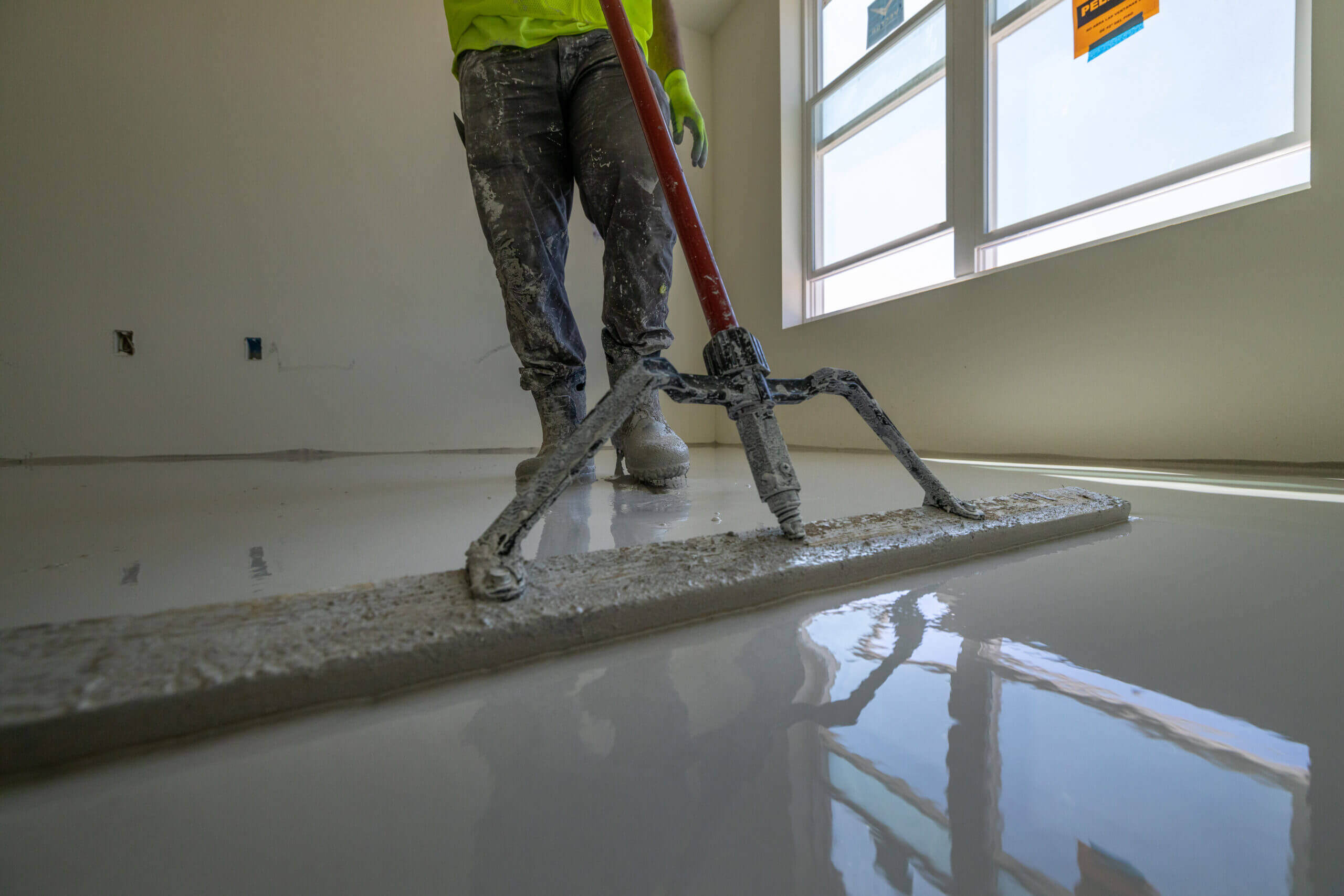Gypsum concrete, or Gypcrete, refers to gypsum-based cement made with a fixed ratio of sand and water. It’s available under numerous brand names, like Gycrete, LEVELROCK, and FIRM-FILL. Gypcrete flooring underlayment is suitable for single-family, multi-story, hospitality, and commercial spaces. Here’s more information about four of its most common applications:
1. Subfloor Leveling
Your subfloor should be level before installing a new floor covering to make sure the materials adhere to it correctly. Proper material adherence can improve your floor’s appearance and promote its longevity. Your flooring contractor may recommend Gypsum concrete if your floor has uneven spots. Gypcrete flooring underlayment can even out your subfloor, providing a proper surface for new flooring installation.
2. Soundproofing
Gypsum concrete is popular in spaces that require noise control because of its sound-reduction properties. The underlayment dampens sound, minimizing noise transfer between rooms, floors, and units. It’s ideal for multi-story buildings like condos, where homeowners experience noise from their upstairs neighbors, as the material can dampen sounds. This underlayment is also suitable for hospitality businesses like hotels as it allows them to maximize clients’ privacy and comfort. Gypsum concrete is also ideal for businesses like theaters and recording studios, as it helps confine sound within designated spaces, minimizing its effect on surrounding businesses or homes.
3. Fire Control
Gypsum concrete is a common underlayment choice in spaces requiring fire-resistant materials. This underlayment can help spaces like hospitals improve their fire safety as the material composition of Gypsum is fire resistant. Gypsum contains crystallized water, which evaporates into the air when exposed to extreme heat. The evaporated water prevents fire from spreading too quickly. This is beneficial as it can give people in highly-populated buildings time to get to safety.
4. Renovation
Gypcrete is an ideal option for floor renovation projects as it can be installed quickly. Gypsum concrete is easy to work with because it’s lightweight. It cures faster than other flooring options, like concrete, because of its lightweight quality. Gypcrete is one of the best options for renovating commercial spaces, as it can minimize business downtime and disruptions.
Gypsum Concrete Installation Process
The Gypcrete installation process typically starts with subfloor preparation to create an ideal surface for the Gypsum concrete to cure. Preparation involves repairing cracks, removing dirt and debris, and making sure the subfloor is dry. After subfloor preparation, contractors prepare the Gypcrete for installation. This involves mixing the product with water to allow it to flow over and cover the subfloor. The resulting mixture should be uniform for a well-leveled space.
The material is then poured over the subfloor. Gypsum concrete is self-leveling, but a smoothing tool may be needed to even out corners and edges. After making sure the material is spread evenly across the surface, contractors give the underlayment time to cure before installing the final floor covering. Following product manufacturers’ guidelines throughout the installation process helps DIYers and contractors achieve good results.
Hire a Professional for Gypcrete Installation
Gypcrete can be used in residential and commercial spaces to even out subflooring for proper flooring adherence. It can also be used in condos, apartments, and noise-prone environments like theaters to control the amount of noise moving in or out of designated spaces. Consider hiring a professional to install Gypcrete for optimal results. A professional will determine the appropriate mix and thickness for the Gypcrete depending on your application and existing subfloor. Commercial spaces may need thicker Gypsum concrete than residential spaces because they support heavier loads and experience higher noise levels. Wood subfloors also need thicker Gypsum concrete layers than concrete subfloors because they’re more likely to be uneven. Contact a Gypsum concrete professional today to learn more about their services and how they can help make sure your underlayment is installed correctly.

